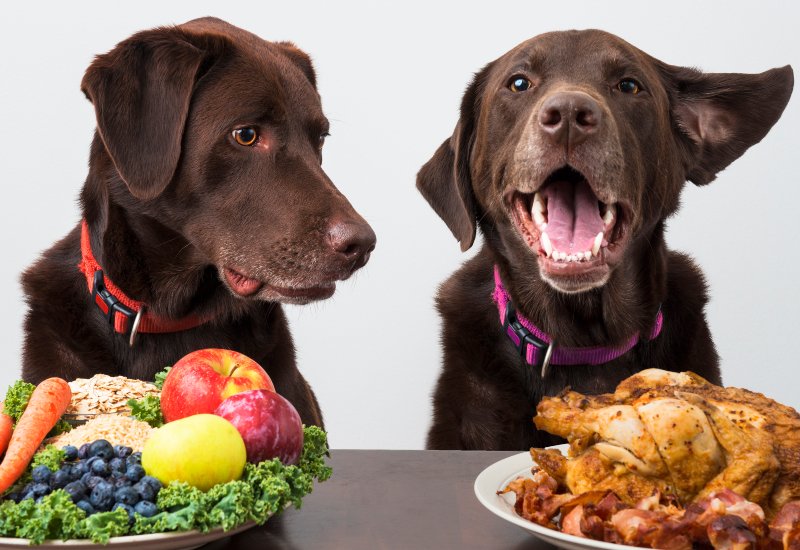How to Help Your Dog Lose Weight
How to Help Your Dog Lose Weight
It’s no secret that obesity is a problem in the United States—and our furry friends are no exception. According to the Association for Pet Obesity Prevention, an estimated 54% of dogs in the US are overweight or obese. That’s a lot of pups carrying around extra weight!
Carrying around extra weight can have serious consequences for your dog’s health. Just like in humans, obesity in dogs can lead to a host of issues like joint pain, diabetes, respiratory problems, and even shortened lifespans. If your dog is carrying around a few extra pounds, it’s important to help them lose weight in a healthy way. Keep reading to learn how you can help your dog slim down.

How to Help Your Dog Lose Weight
There are a few things you can do to help your dog lose weight. First, take a look at their diet. Are they eating too many calories? Are they getting enough exercise? Adjusting their diet and increasing their activity level are two key components of helping your dog lose weight.
Pay Attention to Their Diet
Proper diet is essential for any weight loss journey, including your dog’s. Here are a few tips on how to help your dog lose weight by focusing on their food.
Calories
First and foremost, be mindful of the calorie content in your dog’s food. Just like with people, weight loss for dogs is all about consuming fewer calories than they burn. Too many calories will prevent weight loss, no matter how much exercise your dog gets.
Vitamins & Proteins
In addition to calories, pay attention to the vitamin and protein content in your dog’s food. A healthy balance of these nutrients is essential for maintaining muscle mass during weight loss. If your dog’s food is lacking in either of these nutrients, they may start to lose muscle mass along with fat, which can impact their health negatively.
Homemade Food
You may also want to consider homemade food for your dog. This way, you have complete control over the ingredients and can ensure that your dog is getting all the nutrients they need. Fresh food is always best, but cooked or raw food will work as well–whichever your dog prefers.
Water
Finally, make sure your dog is getting enough water. Adequate hydration is crucial for overall health, and it can also help to boost metabolism and promote weight loss. Dogs should drink about 1 ounce of water per pound of body weight each day. So, if your dog weighs 50 pounds, they should be drinking 50 ounces of water—or about 6 cups—each day. Add some extra water bowls around the house and keep an eye on how much they’re drinking throughout the day. Increasing their water intake will help them feel fuller and may help reduce their calorie intake as well.
Fiber
Adding fiber-rich foods such as beans to your dog’s diet can also help with weight loss by making them feel fuller longer.
Exercise
Make sure your dog is getting enough exercise to help him lose weight. Dogs should get 30 minutes to 2 hours of exercise each day, depending on their breed and activity level. Taking them for regular walks or runs, playing fetch in the backyard, or signing up for doggy agility classes are all great ways to help them burn off some extra energy and lose weight safely.
Calculating a Healthy BMI
Regardless of the type of dog you own, it’s important to make sure they maintain a healthy body weight throughout their lives. One way to do this is to calculate their Body Mass Index, or BMI. To do this, you’ll need to know your dog’s weight in pounds and their height in inches. Once you have this information, simply multiply your dog’s weight by 703 and divide it by their height squared. This will give you their BMI.
To get an idea of what a healthy BMI looks like for your dog, simply refer to the following list:
- 2-5lbs: 14.5-17.5
- 6-10lbs: 16-18.5
- 11-15lbs: 17-20
- 16-20lbs: 18-21
- 21-25lbs: 19-22
- 26-40lbs: 20-24
- 41lbs+: 21+
As you can see, there is a range of BMI values that are considered healthy for dogs of different sizes. However, it’s important to note that this is only a general guide. If you’re concerned about your dog’s weight, be sure to consult with your veterinarian. They will be able to give you specific advice based on your dog’s individual needs.
Contact K-9 University with Any Questions Today!
If you’re looking for a weight loss program for your furry friend, contact K-9 University. We have locations inPlano andGarland, TX, and we would be more than happy to help your pup shed those excess pounds. We offer a free consultation so that you can meet with one of our certified trainers and ask any questions you may have before signing up. Give us a call at 972-530-7077 to schedule an appointment today and to learn more about our dog care services and rates!
